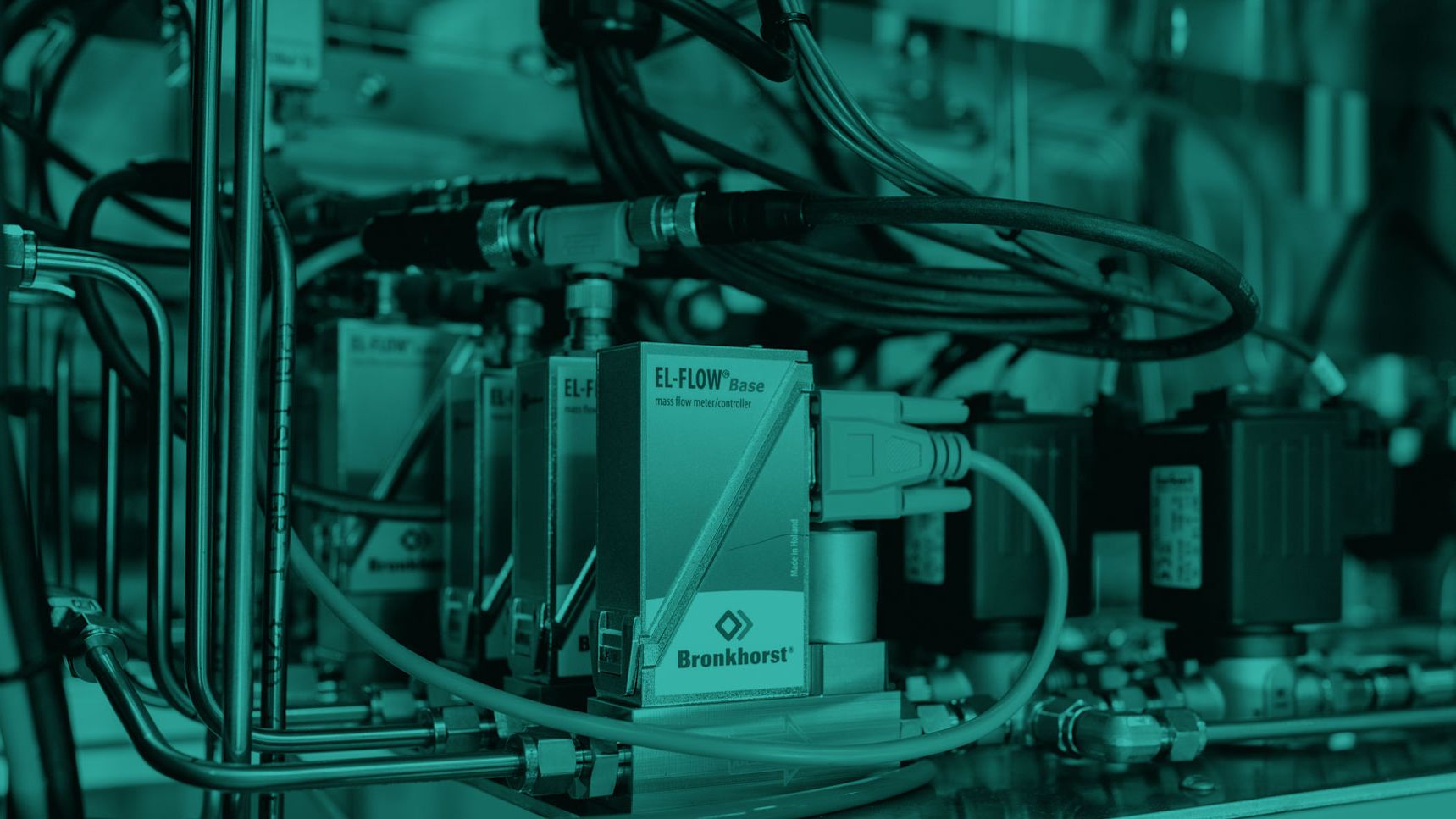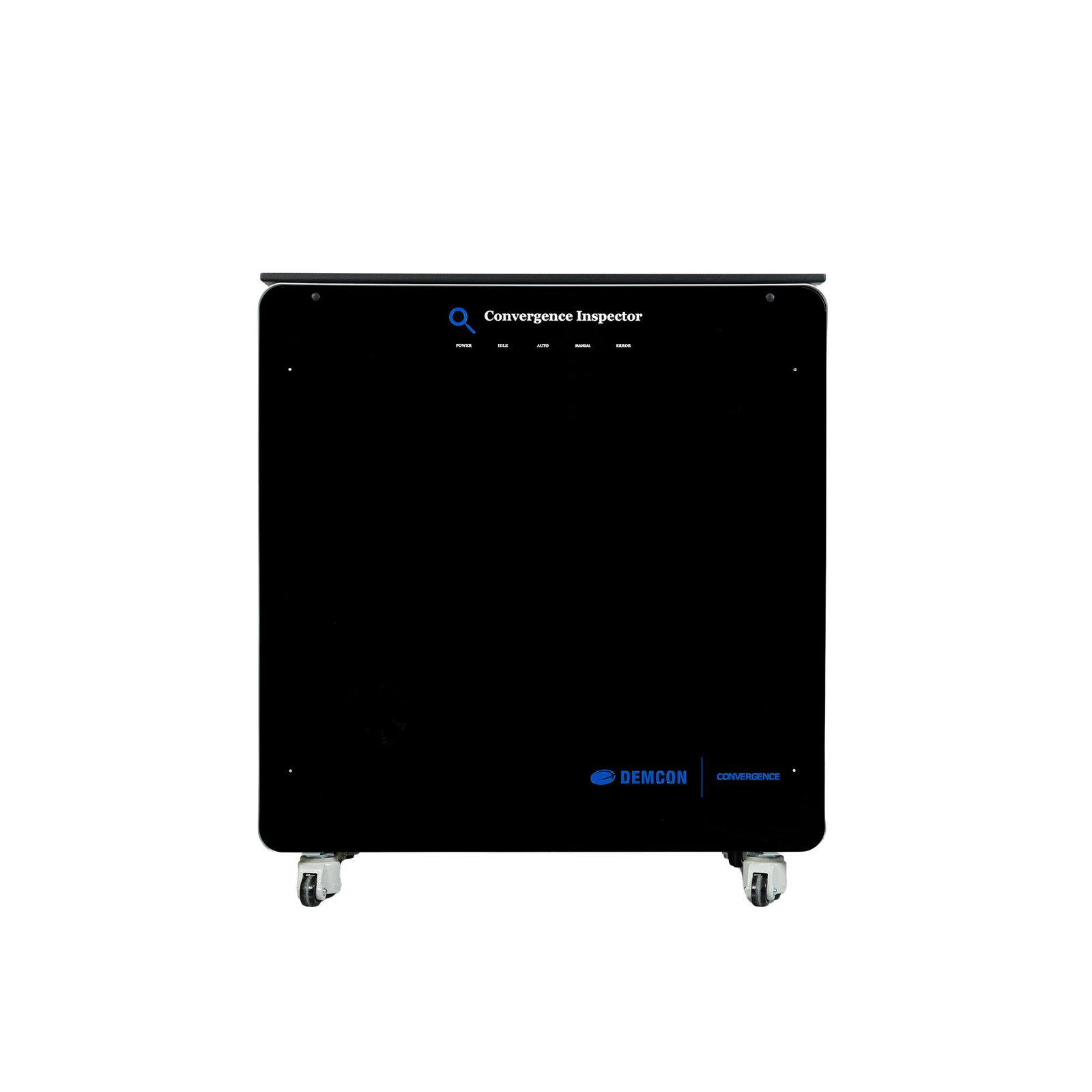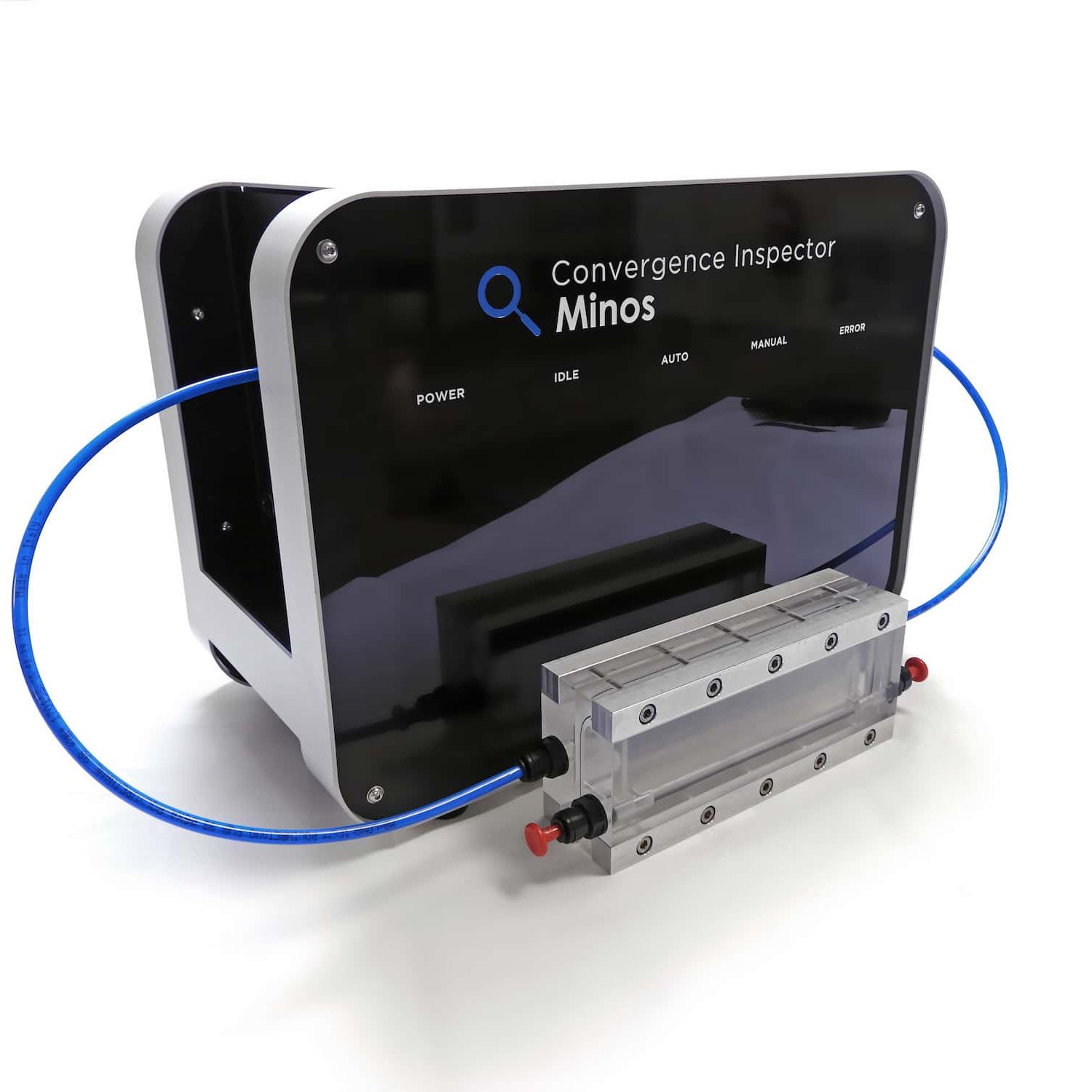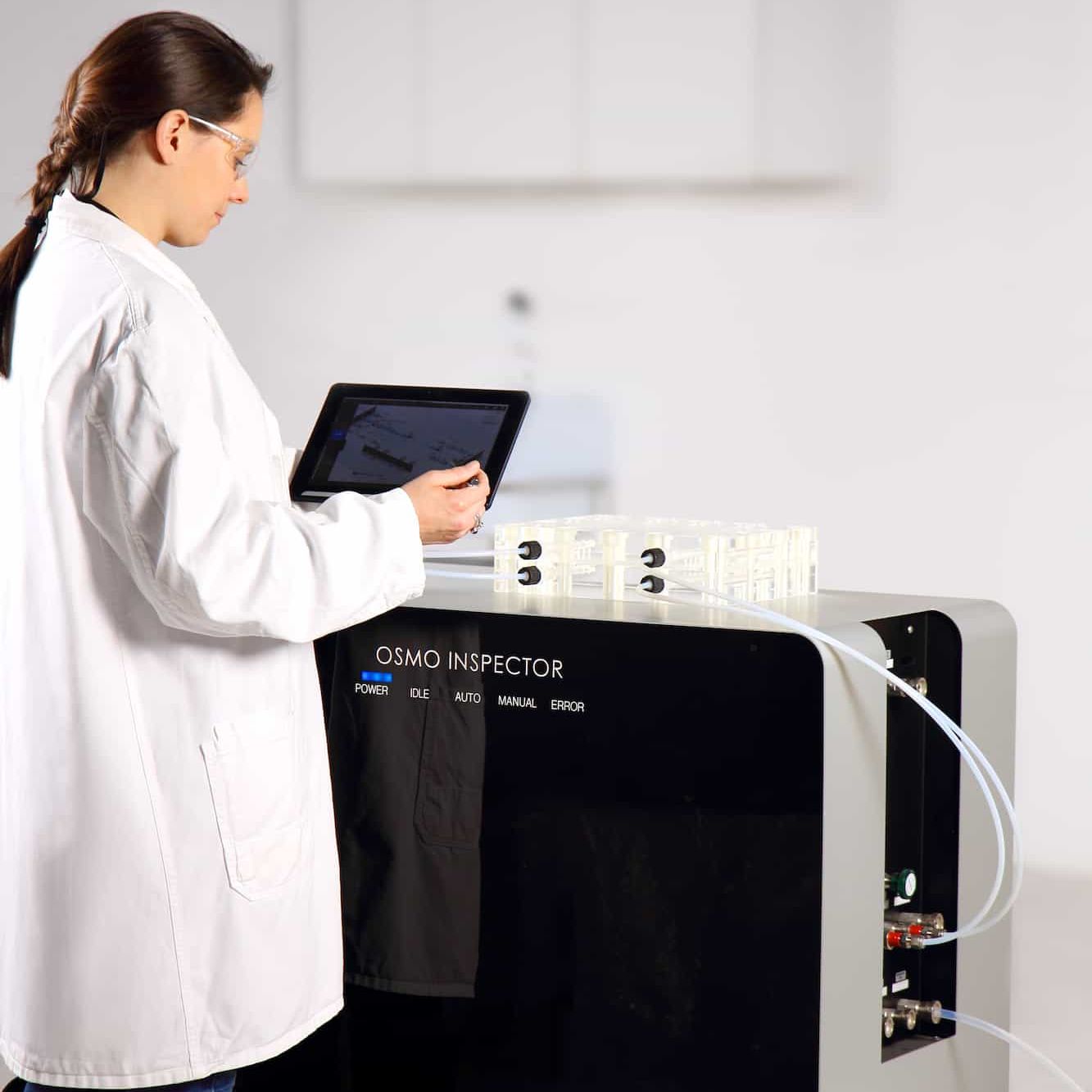key features.
- Tailored test protocols aligned with your QA standards and regulatory requirements
- Flexible software interfaces for integration with data systems and audit trails
- Support for all major non-destructive integrity tests:
- Liquid Entry Pressure (LEP) Test – Determines the pressure at which liquid penetrates the largest pores of the membrane.
- Bubble Point (BP) Test - Identifies the pressure at which gas first passes through a wetted membrane, indicating pore size distribution.
- Diffusion (Forward Flow) Test - Measures the gas flow through a wetted membrane under pressure to assess pore integrity.
- Pressure Decay Test - Validates membrane integrity by monitoring pressure stability over time, detecting leaks or structural defects.
- Water Intrusion Test (for hydrophobic membranes)
- Custom housing and mechanical design to fit your production or lab environment
- Semi or fully automatic - operator friendly.
- Custom manifolds designed to interface seamlessly with your specific membrane formats.
Note: While we support a wide range of integrity test methods, it is not always feasible or effective to combine all of them into a single system. In such cases, we work closely with you to define the most practical, reliable and cost effective configuration.
built for compliance, traceability, and confidence.
With robust construction, high-precision control, and software features that support 21 CFR Part 11 compliance, our systems deliver reliable, repeatable, and regulatory-compliant testing — whether for sterile filtration validation, biotech process validation, or routine batch release.
We are ISO 9001 certified and often work under quality agreements with our clients. We are able to fully support strict data integrity and record retention requirements. Our administrative systems are setup to ensure full traceability of all critical components and records — in line with ALCOA principles (Attributable, Legible, Contemporaneous, Accurate, Complete) — through manufacturing and release.
To ensure quality and predictability throughout the development lifecycle, we follow a stage-gated V-model approach. This structured methodology allows us to systematically validate each phase — from requirements and design to implementation and verification— ensuring that every bespoke Filter Integrity Tester meets your technical, regulatory, and operational expectations.



